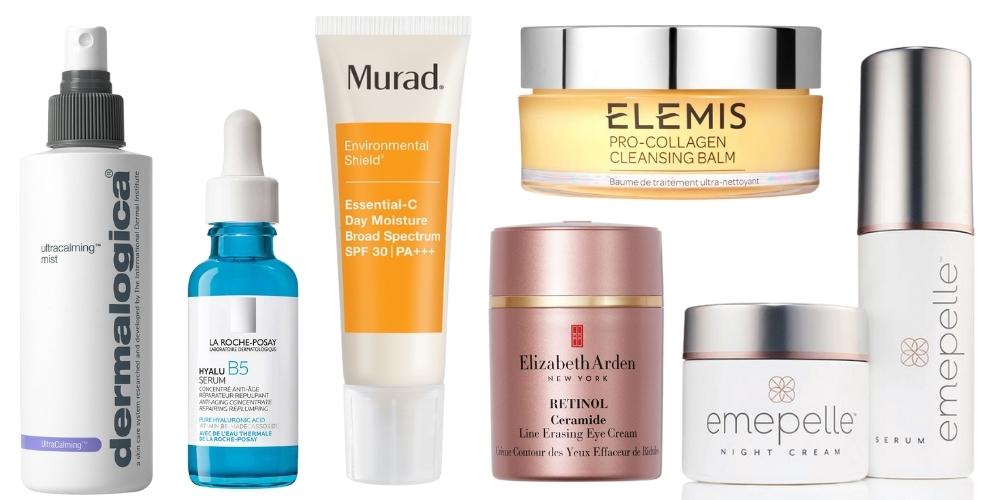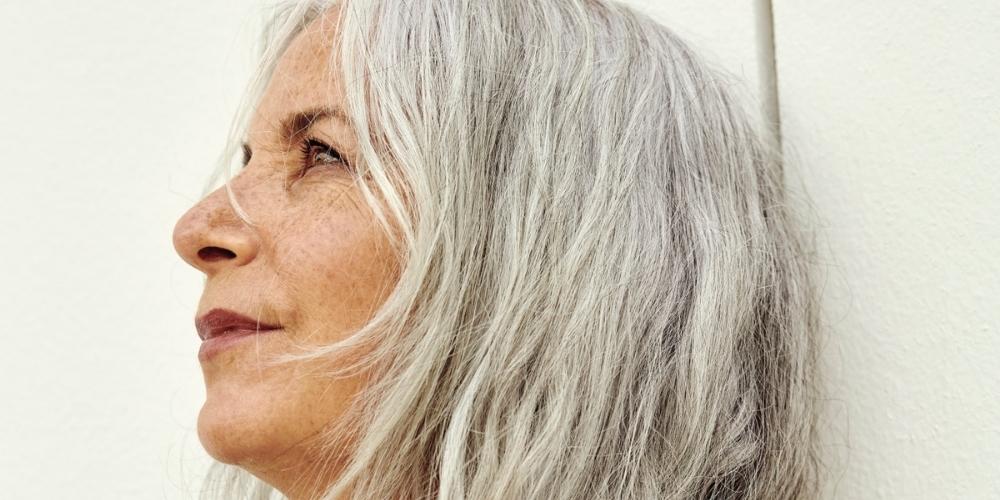Menopause has a surprisingly significant effect on your appearance, but there is much you can do to counteract its effects.
Much like menstruation or effective birth control, for something that affects around half of the population, there’s surprisingly little sustained and widespread information and conversation around menopause.
It’s a relief then, that old boundaries of ‘polite chat’ are well and truly being shoved aside for the benefit of everyone, particularly those experiencing the related hormone changes that can sometimes bring about unexpected results.
While beauty brands have traditionally been guilty of neglecting the significant post-menopausal demographic, aesthetic experts have spent much of their time focussed on solutions, assisting women in minimising the effects of middle age on skin condition and facial appearance.
Thankfully both areas are swiftly developing, the range of skincare available to address specific needs burgeoning, and in-clinic treatments offering the ability to help balance changing facial structure.
Most women become menopausal between the ages of 45 and 60. The average age for menopause – classified as more than 12 months after having your last period – in NZ and Australia is 51-52, but changes can begin to become apparent in the years preceding, known as perimenopause, and offer up different ones in the years after.
“Menopause is a process of hormonal changes that cause hormonal disbalance,” explains Dermatologist Dr Daniela Vanousova of Skin Institute.
“The main hormone that is responsible for it is oestrogen, that stimulates eggs to mature in ovaries and has a lot of other functions.”
Dr Vanousova says a natural decline in oestrogen ends the menstrual cycle but it also has an impact on skin and its underlying structures, a list which is long.
Effect on skin and appearance
“Reduction of oil causes dry, itchy and easily irritable skin, it’s more prone to photodamage and hyperpigmentation and unwanted growth of facial hair. A reduction of collagen makes the skin less elastic, the skin loses volume and tightness.”
Astoundingly, she says women lose 30% of the overall collagen content that is present in their skin within five years of menopause and then continues but at a much slower rate.
Linda Sharrem Skincare Trainer for Caci continues the cheery list.
“During menopause skin starts to become more thin and the natural rate of skin cell turnover slows right down. The skin can become more transparent due to a lack of essential fatty acids and lines can look deeper.
“We often hear customers mention they look tired, even though they don’t feel that way and that their skin lacks vibrancy or a ‘glow’”.
She says collagen loss is usually most noticeable around the eyes and lower face and unfairly, hormone fluctuations can also mean breakouts. “Usually along the jawline, and sometimes even those who have never had breakouts will get them.”
Agreeing menopause can be challenging in a number of ways, aesthetic expert Dr Catherine Stone of The Face Place says what many people don’t realise is that bone loss also accelerates. “It means that the foundational support of the face changes structure contributing to jowls, hollow temples, dropping of the nose, squaring of the face, and the ‘witchy chin’.

Try these: Dermalogica Ultracalming Mist; La Roche-Posay Hyalu B5 Hyaluronic Acid Serum; Murad Essential-C Day Moisture Broad Spectrum SPF 30 | PA+++; Elizabeth Arden Retinol Ceramide Line Erasing Eye Cream; Elemis Pro-Collagen Cleansing Balm; Empelle Night Cream & Serum
Skin and treatment solutions
From a surface point of view, adjusting your use of skincare, and choosing gentle, nourishing products and wearing SPF every day can do much.
Our experts each suggest regularly applying skincare – serums and moisturisers in particular – with the following ingredients will be beneficial to treat dry and aging skin:
- Hyaluronic acid – a molecule that helps skin hold on to moisture.
- Vitamin A or Retinol – increases cell turnover, boosts collagen, minimises wrinkles and strengthens and thickens skin.
- Vitamin C – an antioxidant multitasker that protects skin from further damage, evens tone and minimises lines.
- Ceramides or oils – prevent moisture loss and maintain the health of the skin’s protective barrier.
One promising new skincare line is Empelle, developed to cater specifically to menopausal skin. Its serum and moisturiser contains unique and new ingredient technology that encourages skin to behave as though oestrogen is still present.
“The hero ingredient, Methyl Estradiolpropanoate (MEP), is a non-hormonal way to activate the oestrogen receptors,” explains George Kypreos, Managing Director of Dermocosmetica, that distributes Empelle in Australian and NZ
“Since the oestrogen receptor activator is specific to the skin, it’s going to thicken the epidermis and stimulate collagen with no off-site activity.”
Kypreos says the brand’s studies have shown that the Emepelle regimen improved wrinkles, texture, colour and hydration in as little as 8 weeks for younger patients, and 20 weeks for older patients who have been in menopause longer.
Skin and aesthetic care clinics now offer a raft of effective treatments that help skin retain resilience and encourage collagen production, post menopause.
Sharem suggests trying a hydrating skin treatment such as a sonophoresis skin infusion , a professional peel that offers gentle exfoliation to encourage cell turnover ‘to bring back that glow’ and for more advanced signs of skin ageing, fractional CO2 Laser and Microneedling can help to reverse the effects of sun damage and scarring, balance your complexion, tighten loose skin and soften lines and wrinkles.
Dr Stone says most of the treatments The Face Place offers help, it’s just a case of finding the combination that suits each person.
That could involve the use of injectable fillers that help replace the loss of volume in cheeks, jawline or chin. Varying densities of filler available these days means underlying structural changes can be minimised.
Also useful? PRP (platelet rich plasma) treatment to improve your skin’s texture, thickness and luminosity or Profhilo, a non-volumising injectable that improves general hydration as well as stimulate new collagen and elastin under the surface layer of skin, which is effective for counteracting crinkly or sagging skin on the face, neck, chest, hands and even knees.







